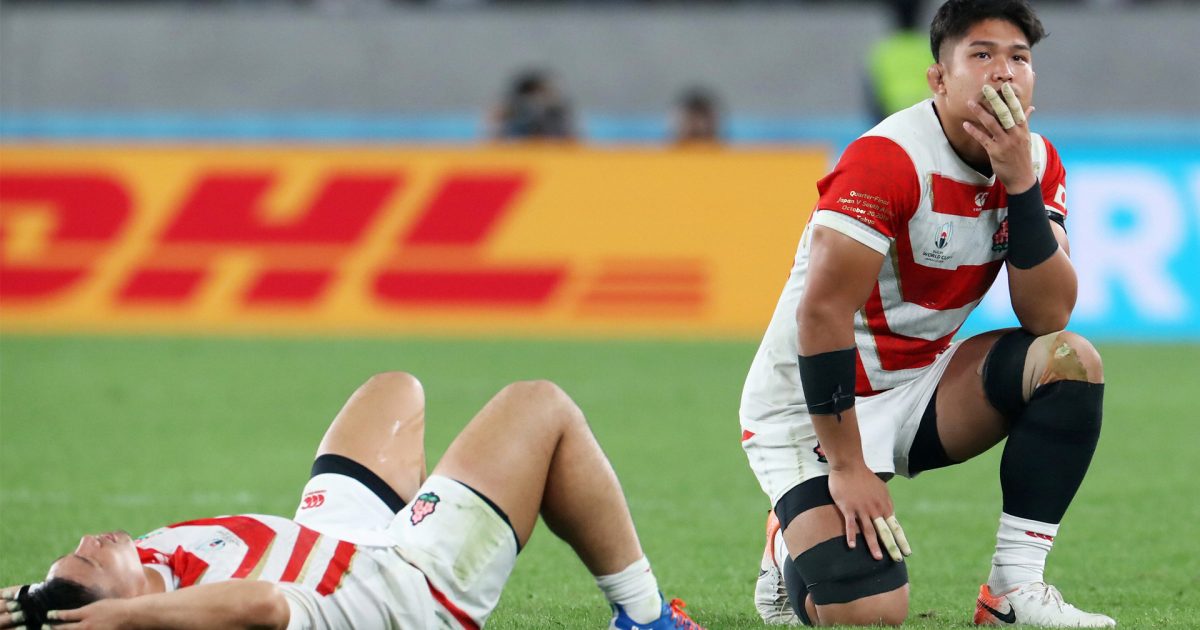'That gap was massive': Where Japan needs to make up ground on NZ and Australia

Cast your eyes through last year’s All Blacks and Wallabies squad and while there are many players entering the twilight of their careers, you’ll see plenty of young players in their early 20s who are already making the step up to test rugby.
Men like Ethan de Groot, Josh Lord, Tupou Vaa’i, Hoskins Sotutu and Quinn Tupaea are all still 23 years or under while the Wallabies called upon talents such as Angus Bell, Rob Valetini, Tate McDermott, Noah Lolesio, Len Ikitau, Hunter Paisami and Jordan Petaia who are of a similar age. In fact, the All Blacks and Wallabies selected 14 players each who would still be eligible for an Under 25s competition, if such a thing existed. With a few exceptions, those men have also all had ample opportunities to prove their talents at Super Rugby level and, in some cases, are well into their international careers.
In contrast, consider Japan’s national squad from last year’s Autumn Nations Series where the Brave Blossoms fell to defeats at the hands of Australia, Ireland and Scotland. While 10 players amongst the squad are still 25 or under, the bulk of those men were into their first campaign in 2022 and have only recently started playing professional rugby.
Because unlike in New Zealand and Australia, the vast majority of Japan’s youth prospects aren’t thrust straight into a professional side. In Japan, education comes first and young players, regardless of their talents, tend to head to university full-time, with rugby just a side-gig during their early 20s. That means while the likes of Noah Lolesio and Will Jordan have been hitting the paddock for the Brumbies and Crusaders, their counterparts in Japan have been hitting the books.
Kazuki Himeno, one of the stars of the 2019 Rugby World Cup in Japan, followed that very same path, completing his studies at the prestigious Teikyo University before making his professional rugby debut for Toyota Verblitz when he turned 22.
Four years later – and still in the formative years of his professional career – Himeno headed to New Zealand for a season of Super Rugby with the Highlanders and suddenly found himself playing alongside and against a slew of younger players who were at a similar stage in their rugby development.
“When I went to the Highlanders, I was 26. Playing rugby at 26 in Japan is considered quite young still. When I went to New Zealand, I found out 26 is not so young,” Himeno, speaking via a translator, told media this week.
“That really helped me understand and realise the depth of players in New Zealand where players actually had the opportunity to be successful in the rugby industry when they’re 19 to 20. Because in Japan, ultimately after you graduate uni, you’re about 22 and that’s when you actually start your career as a rugby player. So I felt that gap was massive, it’s really big.
“For the Kiwis to be able to play a high-level standard of rugby when they’re 19 to 20, that’s a gap that we can’t quite [make up between] New Zealand and Japan.”
While Japan’s system is excellent at preparing players for life after rugby, it’s one which won’t necessarily fast-track top young talent into the professional systems where they can develop into top-tier players.
It can also throw out unusual situations for coaches in Japan’s Rugby League One competition.
“It’s definitely a very different beast over here,” said Verblitz head coach Simon Cron, who is heading to the Western Force at the end of the season.
“Even when you’re looking at things like recruitment of your Japanese players, the recruitment you do, they might be second-year university so you don’t see them for another two years minimum until they finish. Even while I’ve been here, the recruitment has come from the coaches previous to you being here and that’s quite complicated because the coach who was here previously was South African and the team didn’t pass the ball that much, so you’re looking at a different type of player. And some of the players we’ve recruited will come after I’ve gone.
“So it’s definitely a different system and it’s been ingrained here for quite a long time. And I think that the university qualification’s really important but I see potentially it being an area that will evolve over the coming two, three years as professionalism continues to grow.”
While young players in New Zealand and Australia are often encouraged to study or undertake external training while in their formative years of professional rugby, it’s in addition to representing their Super Rugby clubs and means that players will rarely finish up their careers without having something else in the bag for the future, but they’ll be able to get over a decade of professional rugby under their belts, injuries permitting. When they hit their physical peaks, they’re often at their mental rugby peak also, whereas those peaks might not be quite so well aligned in Japan.
To Himeno’s credit, however, his relative lack of experience didn’t affect his performances on the field for the Highlanders with the Brave Blossoms representative one of the top players in last year’s Super Rugby competition.

























